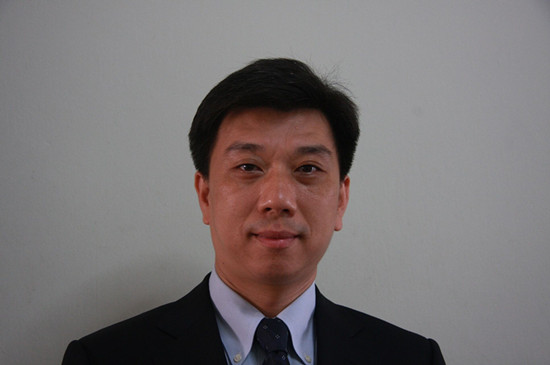ChinaTravelNews - Hotel organizations are constantly looking at automating their distribution and reservation systems, with a strong focus on how to make the most of cloud-based computing and real-time availability and updating of data. This, of course, is a valid investment as for years distribution and revenue management teams have managed reservations, availability, rates and inventory data in multiple systems.
Clearly, the industry is taking initiatives to do away with manual juggling of data between systems.
But a lot needs to be done before this becomes a reality across the industry. For instance, in a vast market like China, the challenge today lies in changing the mindset.

Philip Liu, GM – China, Sabre Hospitality Solutions
“Clearly the understanding of “ How to get the most from technology” has to date been different in China,” says Philip Liu, GM – China, Sabre Hospitality Solutions.
Liu explains that local hotels in China have historically thought about technology using disparate systems that usually require a local installation, however the mindset is changing towards integrated solutions with one source of data flowing in real time between systems improving distribution efficiency and enhancing the guest experience through the booking process. Today hoteliers need to move away from an on-property guest experience mentality towards enhancing overall guest satisfaction from the planning stage to booking to post stay communication. Using integrated technology allows hotels to not simply enhance guest experiences but to manage brand performance throughout the booking process.
Hotels that integrate their technology and use the latest rate optimization and revenue management tools have stronger brand value and loyalty, and achiever higher room and occupancy rates compared to similar hotels with the same ratings in the same area. One of Sabre’s customers in Shanghai sells rooms at $180 with 80 percent occupancy, while a very similar hotel across the road only achieves $130 and has 60 percent occupancy.
Cloud is powerful, but understanding is slow
Liu explains that Chinese hotel companies today need to look at multi-channel, multi-device distribution with a blend of human expertise and technology. For instance, a hotel brand needs to assess how it can benefit from its systems being centralised in the cloud. How can their local team gain access to a more precise view of the performance of the property or chain and optimize room availability across channels. With a cloud-based integrated offering, hotels and chains can access all manner of information on all of their properties from a single source using secure, instantly available data.
Hotels in China are also concerned about the speed of their internet connection, and the overall impact on the customer experience if there is an outage in connectivity. A network that is supporting information technology infrastructure completely in the cloud, needs a robust platform and an experienced provider, explained Liu. “These issues are being addressed, and hotels definitely acknowledge the efficiency aspect of cloud-based solutions,” said Andrew Cox, VP, Business Development, Asia Pacific.
Another challenge that the local hotel industry is facing is the lack of trained and experienced professionals in the distribution technology space. “The hospitality industry has made great progress in technology and through this technology, experienced solid growth, However it isn’t uncommon to find an organization struggling to attract and retain talent because the demand is so high for these skills,” said Liu.
Again hoteliers need to understand what options are available to them and the resources required to optimize their distribution strategy on a daily basis. What integration is required to interface a reservation system with the property’s other marketing and operational systems across their on-site systems, revenue management and distribution systems. There are several systems that are used today and hotel organizations need to have the best resources in place to understand and benefit from the significance of single image inventory.
Supporting direct channels
Hotel companies would like to attract guests to their hotel website while still actively participating in OTA channels. One of the most frequent requests is to find ways to improve a hotel’s conversion through digital channels that are owned by them.
Liu highlights that websites of many Chinese hotels are still not optimized. “If I am looking for a room, and presented with information that is not relevant to me or doesn’t aid my decision-making then it’s a lost opportunity for a hotel,” said Liu, referring to the significance of booking engines offering tailored and appropriate merchandising opportunities powered by seamless integration through the CRS.
Sabre Hospitality Solutions looks at how guests use mobile, tablet and social platforms in their planning and booking process.
Cox acknowledges the power of social platforms, and acknowledges that social networking sites and using multiple devices are now an integral part of our lives. We are working on functionality that would enable customers to book directly in social media environments.
Today hotel companies need to look at every facet of a their website, optimizing payment options to increase revenues, managing merchandising campaigns, increasing international presence, conversion and tracking consumers online behavior.
Talking of facilitating transactions, Liu mentioned that it is absolutely vital for the Chinese hotels to integrate Alipay and UnionPay in the booking flow on every possible channel,
Clearly there are huge opportunities for hotels in China to leverage better technology to power their distribution strategy using right channel, right product, right pricing aimed at the right customer segment. Direct distribution utilizing hotel brand website, with a smart digital marketing strategy should be the core and ultimate focus of any hotel. Sabre Hospitality Solutions is ready to assist hotels in China reach their distribution goals and ultimately achieve higher revenues. (Report by Ritesh Gupta)




